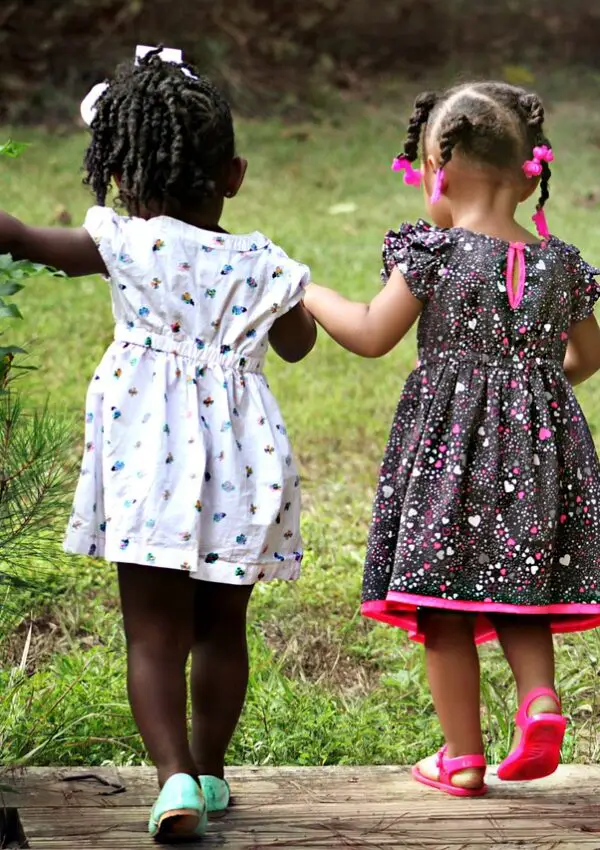
Every child deserves two parents who are capable of cooperating. Unlike the parents who choose to divorce, the children are trapped in the middle. They frequently feel as though their world has been turned inside out.
Co parenting is an essential part of a child’s life. It should fulfill the needs and expectations of your child. It also assists the child in developing a positive relationship with both parents.
Aside from relationship issues, getting along with your partner is critical because it greatly impacts your child’s mental health.
Supporting each other, taking care of yourself, not engaging kids in your issues, being upfront with your divorce, etc., can help with co parenting after divorce. As much as it is not simple, these tips can help you navigate through the process. Besides, the children benefit positively if you have a mutual understanding.
In this article, we will go over healthy co parenting boundaries and how to improve co parenting after divorce.
Healthy Co-parenting Boundaries
Co parenting is so much easier with boundaries. Setting effective co parenting boundaries allows both parents’ time, energy, and privacy to be respected.
Boundaries establish reasonable expectations so that each parent may properly perform their co parenting role and maintain the relationship’s harmony and balance.
Follow this list of co parenting boundaries for a healthy co parenting relationship and happy children.
- Keep the Kids Out of the Fights
Only you and your co-parent should discuss adult issues. When talking to your children about your co-parent, you should go above and beyond to set a positive example. When a child’s self-identification with both parents is recognized, they feel affirmed.
“Hey Kid, you’re good at English, just like Mummy!” You can make positive remarks like this to your child. Positive comments about your co-parent can encourage your child and help reinforce a strong co parenting connection. Allowing either parent’s criticism to affect your child’s self-esteem is bad.
- Communicate in a Professional Manner
When you’re co parenting, this is a crucial line to draw. You need to have co parenting communication guidelines.
co parenting can be beneficial if parents work together to maintain a professional and amicable connection. To accomplish this, you and your co-parent must communicate like you would with a coworker or boss at work.
Keep personal issues about each other’s lives out of the connection and focus on the child. The assumptions, expectations, and informalities of your previous personal connection must no longer exist for you to progress toward a good co parenting partnership.
For the children’s sake, you should emphasize the ability to cooperate politely for the children’s sake.
- Stick to the Parenting Schedule
Make sure your parenting plan is detailed and free of uncertainties. Parenting time, exchange dates and times, vacations, and emergency measures should all be included in the plan.
You should create a detailed parenting plan that revolves around scheduled parenting time rather than school, work, or social life. Respect your co-parents’ time by showing up on time for pick-ups and drop-offs and by not scheduling activities during their time.
Tips on How to Improve Co-parenting After Divorce
Children are harmed not by divorce or separation but by parental conflict, whether divorced or married. You must seek out healthy techniques to improve co parenting after a divorce.
Here are some basic tips to improve co parenting after a divorce while keeping your child’s best interests in mind.
- Be Upfront About Divorce
Children rarely have a say in their parents’ divorce decisions. This does not imply that they should be kept in the dark. Their lives will never be the same after all. The more you keep things hidden from them, the more they’ll blame themselves.
When your children sense anything is wrong, reassuring them and offering a safe environment for communication is always ideal. When emotions come into play, don’t be scared. It’s beneficial to allow your children to express their feelings so that you can understand what they’re going through.
Acknowledging your children’s feelings will make them feel safe and valued, allowing you to move forward as a family.
- Support Each Other
After a divorce, both parents will have an equal role in co parenting, so it’s critical to provide full support and have an open conversation. You’ll have to make a lot of crucial decisions together, including extracurricular activities, school, and their well-being.
When one parent becomes problematic, it usually impacts the entire family. It puts the other co-parent under a lot of stress because they have to compensate for their former partner’s refusal to cooperate.
Stick to your co parenting routine and be flexible enough to accommodate each other if something arises. Allow yourself to express your feelings and solve any issues before they become too serious.
- Take Care of Yourself
You must look after your mental, physical, and emotional well-being to improve co parenting after a divorce. Remember that no one can take better care of your children than you. As a result, you should constantly be in the greatest physical and emotional condition possible and keep your priorities in mind.
Taking care of your well-being after divorce is essential for effective co parenting. It’s important to remember that even a successful divorce can be traumatic for a child. You must handle it well for the children’s pain to lessen.
- Take Time to Heal
Taking time to heal while co parenting with someone you still love or someone who hurt you is an intelligent way to improve and create a healthy co parenting relationship. Even if the decision to end the relationship was logical, one person would always be more devastated than the other.
You must allow yourself to heal. A divorce usually necessitates some distance. Taking time apart from one another, allowing the metaphorical scratches and scars to heal, will help your co parenting relationship improve over time.
Aside from chats about your child, you must be okay with less touch and communication. Once the uneasiness has passed, you will be able to have a successful co parenting relationship.
- Always Be There for Your Children
Your kids have been through a lot, physically, mentally, and emotionally. As a result, being available to them anytime they require assistance is key. Even if they tend to strike out, it is most likely for attention, and if they feel abandoned, it will only worsen.
As a result, to promote co parenting, you should both spend quality time with them to avoid any unpleasant feelings. It will help to build the co parenting connection if you continue to get involved in your children’s day-to-day activities.
- Begin By Negotiating
Negotiating is the best approach to co parenting without going to court, and it can significantly improve co parenting after a divorce.
You’ll need to agree with your co-partner, and you might as well enlist the help of a neutral third party. You just need to create a suitable custody agreement openly and maturely for co parenting to be successful.
Take Away
Whether you have a good connection with your ex or not, co parenting after divorce entails making a lot of decisions with your ex. Things should work out nicely if you prioritize your children’s well-being over arguing over every issue.
Remember that the key to a smooth adjustment to the new environment is to nurture as many of your children’s vital relationships as possible.
Always shield your children from parental disagreement, as they should not take the burden of a failing marriage. It’s also important to have open lines of communication with your children and ex-spouse, as it aids in the improvement of your co parenting relationship.






